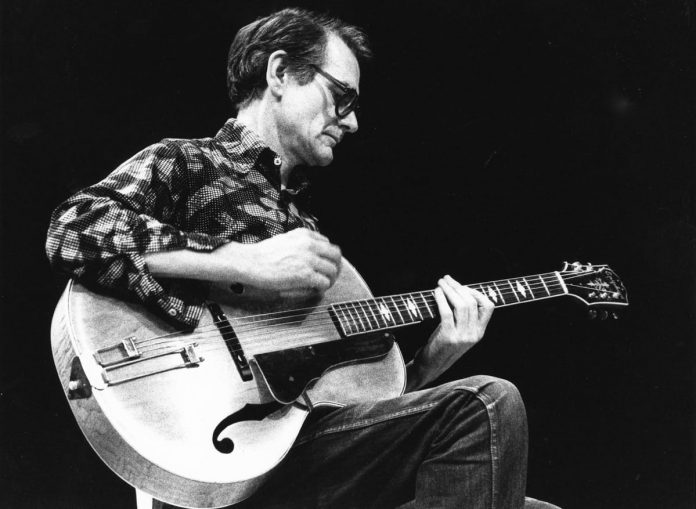With the financial assistance of the British Arts Council and the German Institute, the Musicians Cooperative staged an International Festival of Improvised Music in January. The final night at the Collegiate Theatre offered an excellent programme featuring players from both countries. The Evan Parker/Paul Lytton Duo opened with a very good set. They have always had a sympathy for each other and Parker seems to have gained in sublety. His concern with sound in its own right has developed and might be described as an acoustic realisation of what might more normally be expected from electronic devices. His tonal fluctuations are handled superbly and Lytton seems to sense how each needs colouring.
Derek Bailey was in tremendous form in his solo set that followed. The rhythmic flow of his music is something that I do not think worries him but it is a factor that guarantees my personal enjoyment of his work. On the night it was perfect, the loose phrases and shouting comments as personalized as a bottleneck blues man yet as modern as tomorrow. His own dependence on the amplification to give continuity to his style is always underlined by his switch to the standard guitar but he fortunately did this only late in his set and then only due to a broken string.
Next came the astonishing Peter Brotzmann Trio. The leader is a saxophonist with a truly incredible technique and an ability to play from a whisper to the most shattering roar that I have ever heard from a reed player. He made use of harmonics with effortless ease and seemed able to transmit his ideas to the horn with an almost Hodges-like nonchalance. Unfortunately, the content of his work was less impressive. His choice of phrases seemed to be made because of the horn and because he wanted to shock the audience. Even the demonstration of his huge range seemed superficial in relation to the actual ideas it should have been sustaining.
Pianist Fred Van Hove was hardly more convincing. His style is essentially theatrical and, although his technical accomplishments are obvious, he also seemed to consider the impact he might have on listeners. Only trombonist Albert Mangelsdorff provided real substance in the group. Since he was last here as part of an international package, he has really come to terms with free playing. In his case, his instrumental talents are subjugated to the needs of the music and his solo interludes were the only parts that gripped because of their musical worth rather than their volume.
The last set found the Musicians Cooperative and friends on stage and the final conclusion must be that England won this international without a controversial goal.
















